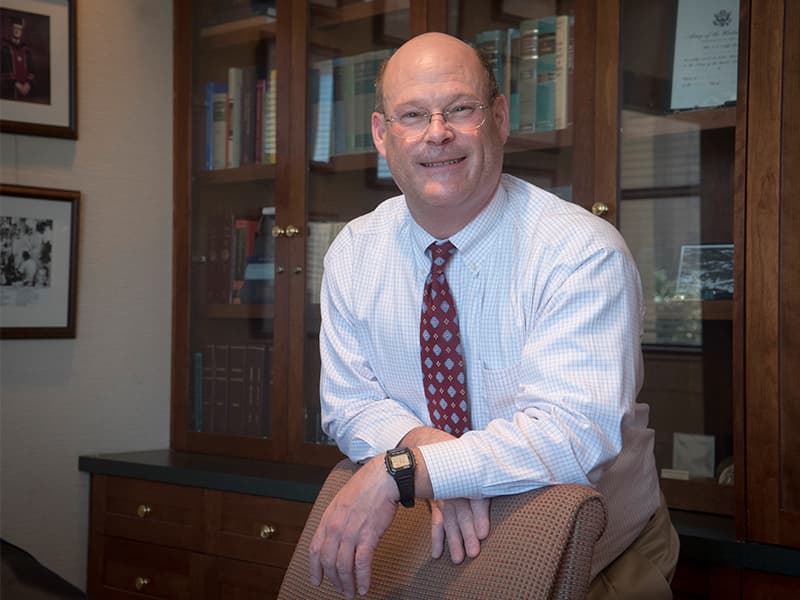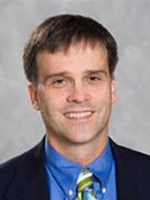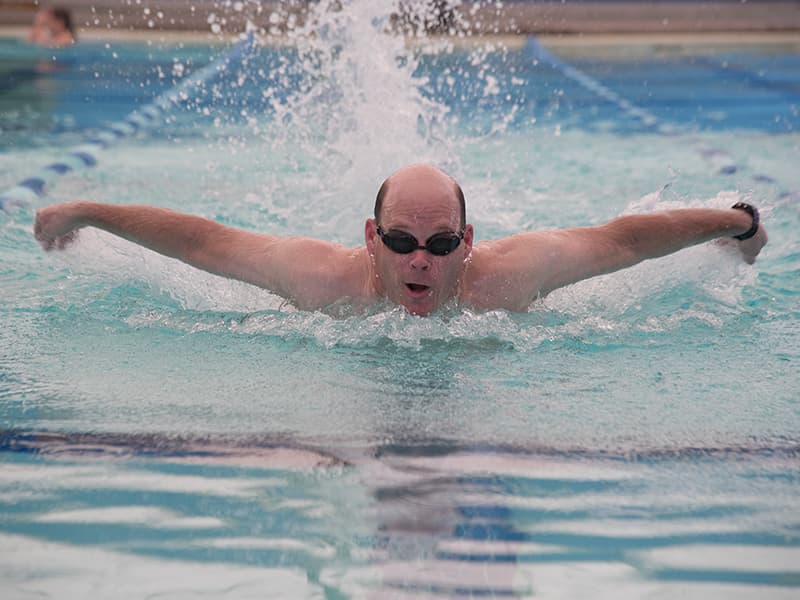Triathlon study cautions racers of risks

It’s no secret that exercise is great for the heart, but no activity is risk-free.
Dr. Larry Creswell, associate professor of surgery at the University of Mississippi Medical Center, co-authored a study on the risk of death or cardiac arrest associated with triathlon participation. The paper, published in the Annals of Internal Medicine, found the highest risk among male triathletes older than 40.
According to the paper, cardiac arrest or death occurred in about two in 100,000 triathlon participants. It’s an uncommon occurrence, but with nearly 500,000 racers in the United States in 2015, tragedy does happen.
“It was surprising to us that seemingly healthy people die during these races,” Creswell said. “There is a small but real risk associated with triathlon, like any other exercise.”
Triathlon is a competitive sport that consists of consecutive swimming, cycling and running portions. The races can last several hours, depending on course length.
For the study, Creswell and colleagues looked through 30 years of race records and news reports and consulted autopsy records to look for cause of death and pre-existing health conditions.

“The study’s strength lies in its ability to assess risk in different populations,” said Dr. Kevin Harris, lead author of the study and a cardiologist at Abbott Northwestern Hospital in Minneapolis.
From 2006 to 2016, they found 135 instances of death or resuscitated cardiac arrest. Depending on age, men were twice to more than six times more likely than women to die or go into cardiac arrest. Among men over 40, the death rate increased from six to 18 deaths per 100,000 racers through 10-year age cohorts.
They also found that two-thirds of the deaths occurred during the swim portion of the race, which usually takes up the first 20 percent of the triathlete’s race time, Creswell said.
“Open water swimming is a challenge for rescue,” Creswell said. It’s more difficult to spot a swimmer in danger or to reach them quickly in comparison to a collapsed runner or cycler.
There might be a physiological reason as well. Autonomic conflict occurs when the two branches of the nervous system act against each other.
The sympathetic nervous system is responsible for the “fight or flight” response. The excitement of the race, the rush to take an early lead and the inadvertent bumping and jostling from other swimmers may rev up the system, Creswell said. Meanwhile, the parasympathetic nervous system controls involuntary actions like breathing and body temperature. Cold conditions and water entering the mouth can trigger a response.
Both systems are working to keep a person alive, but have opposite effects on the heart. The sympathetic raises heart rate; the parasympathetic lowers it. Some researchers think that in the right situation, this autonomic conflict causes the heart to stop entirely.
Because their research only considered autopsy results, the study authors can’t prove if this happened with any of the deceased athletes. However, among those with available autopsy results, 44 percent had causes of death associated with cardiovascular disease, including coronary artery disease or myopathy.
Before signing up for a race, potential triathletes “need to be honest when reporting symptoms of heart disease,” Creswell said, such as chest pains or difficulty breathing. “Participants should give the associated risk their due consideration and work with health care professionals.”
Creswell started participating in triathlons in 2005 as a way to improve his health. He says he visited his primary care physician prior to starting and encourages others to do the same, particularly if they have any concerns about their health.

If a routine visit turns up signs of heart disease, Creswell and Harris said potential triathletes might need further evaluation, like a stress test or electrocardiogram.
Despite the risk, Creswell and Harris emphasize that regular exercise – swimming, running, cycling or any other form – is essential for good health.
“The heart is a muscle. And like any other muscle, exercise strengthens it,” Harris said. “Regular exercise improves blood pressure, weight and lipid levels.”
“We don’t want people to go back to the couch. We don’t want to discourage anyone from participating,” Creswell said. “All of these races are healthy outlets for exercise, but check with your physician first.”


